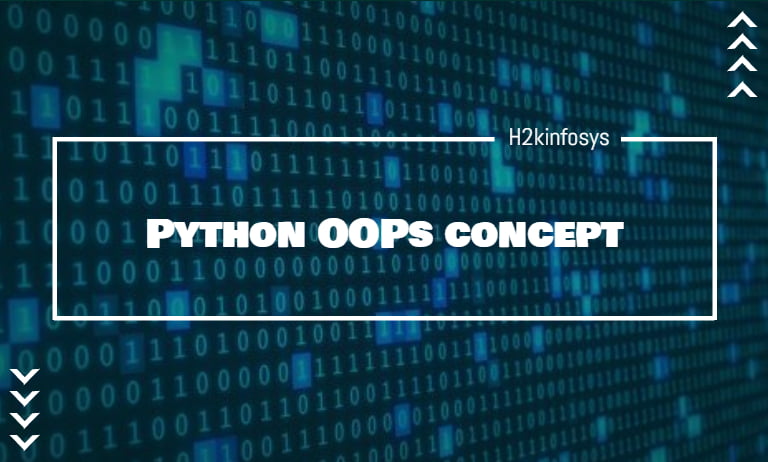In today’s fast-paced tech industry, mastering Object-Oriented Programming (OOP) is essential. If you’re looking to learn Python, you’re likely aiming to grasp the fundamentals of Python OOPs concepts. These concepts are the backbone of modern software development, and understanding them opens doors to countless career opportunities. Whether you’re just starting or aiming for an Online Certification in Python, this guide is tailored for you.
Why Python and OOPs Matter in the Real World
Python is one of the most in-demand programming languages globally. According to Stack Overflow’s Developer Survey, Python consistently ranks among the top three languages. What makes Python stand out is its simplicity, readability, and robust support for OOPs.
Object-Oriented Programming allows you to structure code into reusable and interconnected blocks. This makes Python OOPs a crucial part of your coding skillset if you aim to write scalable and maintainable applications.
What is OOPs in Python?
OOPs (Object-Oriented Programming System) in Python is a programming paradigm that uses “objects” and “classes” to structure software. It helps organize code logically, reduce redundancy, and improve reusability.
Key Python OOPs Concepts:
- Class: A blueprint for creating objects.
- Object: An instance of a class.
- Encapsulation: Hides internal states and requires all interaction to be performed through an object’s methods.
- Abstraction: Hides complex reality while exposing only the necessary parts.
- Inheritance: Allows a class to inherit properties and behaviors from another class.
- Polymorphism: Allows methods to do different things based on the object it is acting upon.
Python OOPs in Action: Real-World Examples
Example 1: Class and Object
def learn_python_class():
class Car:
def __init__(self, brand, model):
self.brand = brand
self.model = model
def drive(self):
return f"Driving {self.brand} {self.model}"
car1 = Car("Toyota", "Corolla")
print(car1.drive())
learn_python_class()Example 2: Inheritance
class Vehicle:
def start(self):
return "Vehicle started"
class Bike(Vehicle):
def start(self):
return "Bike started"
v = Vehicle()
b = Bike()
print(v.start())
print(b.start())This is the power of Python OOPs it simplifies how we manage complex systems by using classes and inheritance.
Benefits of Learning Python OOPs
- Cleaner Code: OOPs helps structure code in a clean, understandable format.
- Reusability: Write once, use many times.
- Scalability: Easier to add new features.
- Team Collaboration: Easier for teams to manage and update code.
Why Choose H2K Infosys for Your Python Journey?
At H2K Infosys, our Python certification course offers comprehensive coverage of Python OOPs concepts. Here’s what makes our program stand out:
- Industry-aligned curriculum
- Hands-on projects using real-world datasets
- Expert-led live classes
- Support for interview preparation and job placement
Whether you’re interested in Top Online Python Courses or seeking Python certificate programs, H2K Infosys is your ideal destination.
Step-by-Step Guide to Mastering Python OOPs
Step 1: Understand Classes and Objects
Use analogies like blueprints (class) and buildings (objects) to make the concepts stick.
Step 2: Practice Encapsulation
Protect your variables and expose only what’s necessary.
Step 3: Implement Abstraction
Use abstract classes and methods to hide unnecessary details.
Step 4: Use Inheritance Smartly
Reuse code from parent classes to build child classes with minimal effort.
Step 5: Apply Polymorphism
Create flexible methods that adapt to input types.
Step 6: Build Mini Projects
Practice makes perfect. Build small apps using Python OOPs to reinforce your knowledge.
Hands-On Learning: Python OOPs Mini Project
Project Idea: Build a Library Management System
- Use classes for books, members, and librarians
- Use inheritance to define user roles
- Use encapsulation to secure user data
Sample Code Snippet:
class Book:
def __init__(self, title, author):
self.title = title
self.author = author
class Member:
def __init__(self, name):
self.name = name
self.books = []
def borrow(self, book):
self.books.append(book)
book1 = Book("Python 101", "John Doe")
member1 = Member("Alice")
member1.borrow(book1)Industry Relevance of Python OOPs
Python OOPs is not just for academic interest. It’s heavily used in:
- Web Development
- Data Science
- Machine Learning
- Game Development
- Automation and Scripting
Companies like Google, Netflix, and Dropbox use Python OOPs in their core products. This makes it crucial for anyone pursuing a tech career.
Online Certification in Python: Boost Your Career
Getting certified enhances your resume and proves your skills. Our Online Certification in Python includes a special focus on Python OOPs, which gives you a competitive edge.
Here’s what you’ll gain:
- Verified certificate
- Portfolio-ready projects
- Recognition by hiring managers
Key Takeaways
- Python OOPs concepts like inheritance and polymorphism are vital for scalable coding.
- H2K Infosys offers one of the Top Online Python Courses with hands-on practice.
- Building real-world projects is the best way to reinforce learning.
- Our Python certificate programs prepare you for real jobs in tech.
Final Thoughts
The tech industry is evolving, and Python OOPs is a skill that keeps you ahead of the curve. If you’re looking to learn Python, gain an Online Certification in Python, or find a Python certification course that prepares you for real-world challenges, H2K Infosys is your go-to destination.
Take the leap, enroll in H2K Infosys’ Python training online and start mastering Python OOPs today. Your career breakthrough begins here!


























